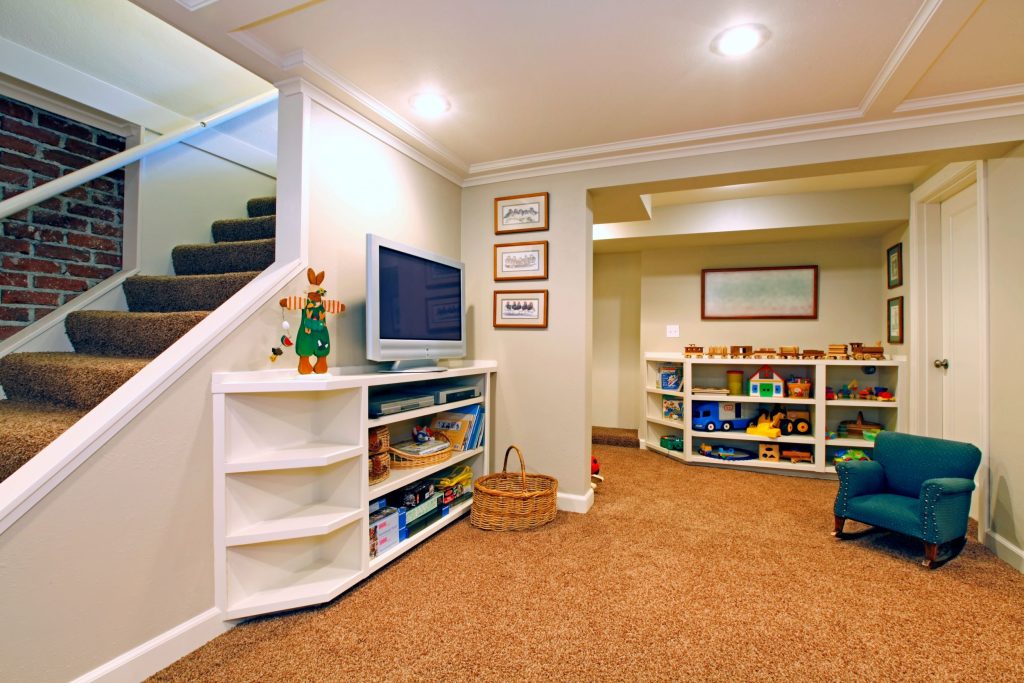7 Pro Tips For A Safe And Dry Basement

7 Pro Tips For A Safe And Dry Basement
Basements are essential areas of a home. They serve different purposes and help improve life quality. For example, some homeowners use basements as hideouts, libraries, game areas, and storage, among other things. Unfortunately, basements are prone to moisture, which makes them unsuitable for any purpose.
Having moist basements can lead to issues that could be costly to fix. For example, a wet basement can encourage mold growth which could pose a health hazard. Keeping your basement dry and safe is, therefore, vital, lest you’re ready to deal with such issues.
If you’re looking forward to keeping your basement safe and dry, here are pro tips to help you achieve these results.

1. Locate The Issue
Suppose your basement is already moist. In that case, the cause of the humidity might either be indoor moisture condensing on cold surfaces or water from outside. Melting snow, rain, and groundwater can collect around the foundation and seep in. Additionally, water can penetrate the basement through cracks in the walls. It can also penetrate via porous concrete in vapor form.
That said, figuring out the cause of moisture in your basement is vital. This will help you understand the steps you should take to correct the issue.
One way to figure out where moisture in the basement originates from is using tape aluminum foil. Tape it on the basement walls and inspect it after a few days. If moisture form outside the foil, the basement experience excess indoor humidity. If moisture forms on the inner part of the tape, the moisture leaks through the walls.
Suppose the moisture forming in your basement results from high indoor humidity. Invest in a dehumidifier or an air conditioner to dry out the atmosphere. If it leaks through the walls, schedule basement wall repair to prevent the matter from worsening.
2. Insulate The Basement
Insulating your basement is another effective way to keep it safe and moisture-free. Experts advise using polyurethane foam since it’s effective and energy efficient. When insulating the basement, remember to cover water pipes running through it. This will limit condensation in the event of excess humidity.
3. Keeps The Gutters Clean And Ensure Downspouts Are In Perfect Working Condition
Schedule gutter cleaning at least twice a year. During the cleaning procedure, begin with the downspout and remove every bit of dirt. You should also ensure the downspouts discharge water five feet from the foundation. This ensures water doesn’t pool around it; hence the chances of seeping into the basement are low.
Functioning gutters prevent water from overflowing and finding its way to the basement through the walls. If your gutters are clogged, the chances of humidity accumulating in your basement are high. Therefore, ensure the gutters aren’t clogged and facilitate smooth water movement.
4. Take Advantage Of A Basement Drainage System
Installing a basement drainage system is among the most effective solution to prevent moisture accumulation. However, this procedure is complicated and requires the help of an experienced waterproof specialist.
There are different basement waterproofing systems. They’re type A, B, and C. Since you’re dealing with a basement in an existing building, you might require type A and C systems.
Type A involves the installation of a waterproof membrane to prevent water seepage while forming a barrier between the structure and groundwater.
Type C waterproof system allows water to seep through the floor or walls. Then, the water is directed towards a controlled drainage point and removed through a sump pipe.
5. Install Heating Cables
You can also warm your basement by installing electric heating cables or mats. While this solution doesn’t heat the space much, it increases floor comfort. Heating cables are also costly to install; hence they might not be ideal for money-conscious homeowners.
6. Eliminate Plants Growth Around The Foundation
Shrubs and plants close to your home’s foundation can lead to wetness in your basement. As the roots rot, they create ways for water to reach the basement via the foundation. Fortunately, you can prevent this by uprooting vegetation close to the foundation. The uproot should be done thoroughly to prevent regrowth.
7. Keep The Basement Clean And Clutter-Free
Cleaning and decluttering your basement is vital when looking forward to keeping it safe and dry. A cluttered and dirty basement will likely shelter pests such as mice and rats. These pests can make a mess quickly, besides spreading deadly diseases.
On the other hand, a cluttered basement prevents light and heat from accessing the entire area, leading to moisture accumulation. With that in mind, ensure your basement is always clean and organized.
Conclusion
A moist basement is among the most devastating things you can deal with. Too much moisture in your basement can cause structural damage and mold growth. When this happens, you aren’t only left to repair the damage and prevent further moisture accumulation. Suppose you’re dealing with a humid basement. Consider incorporating the above-discussed tips and begin enjoying a moisture-free, safe basement.
Comments are closed